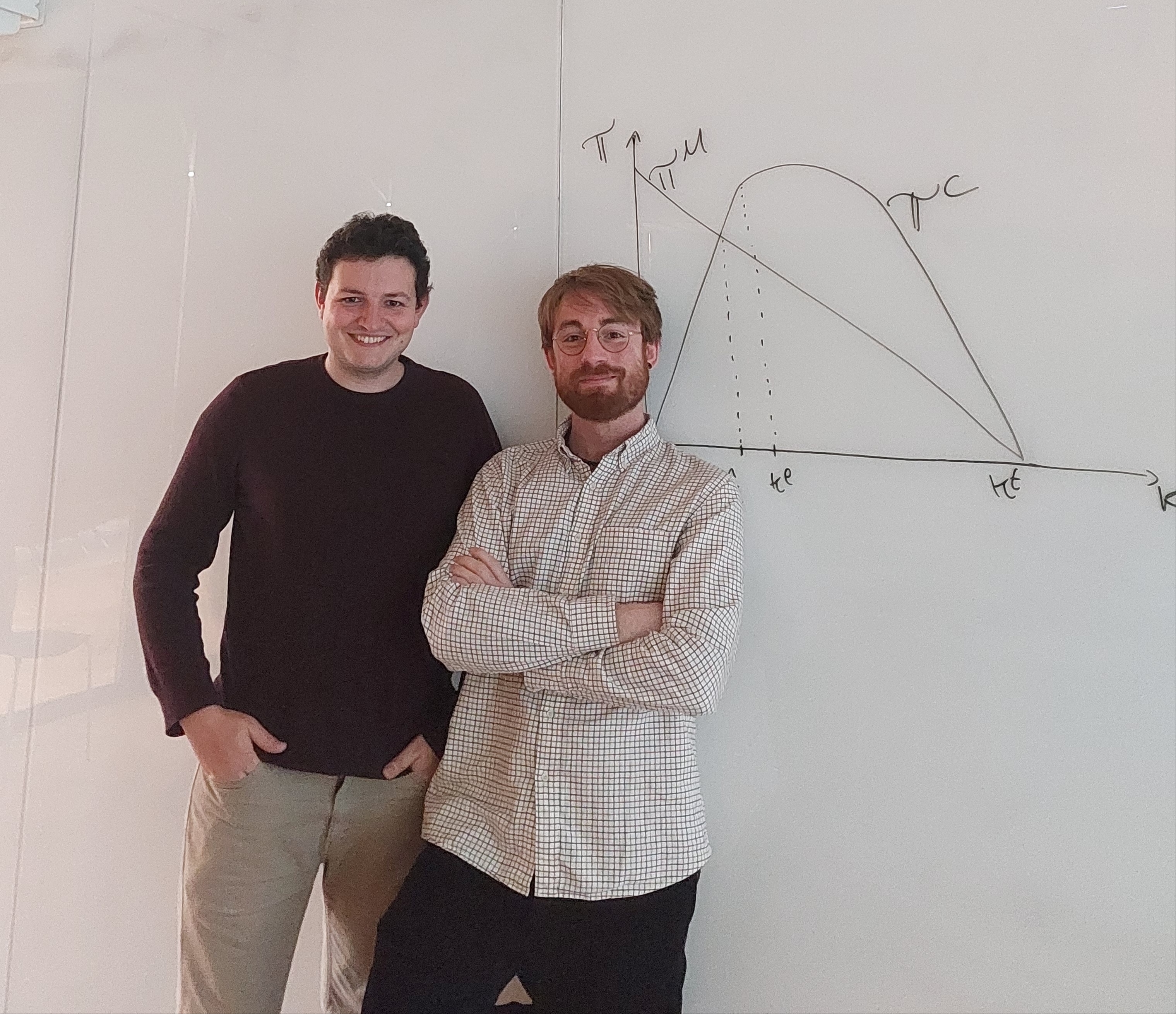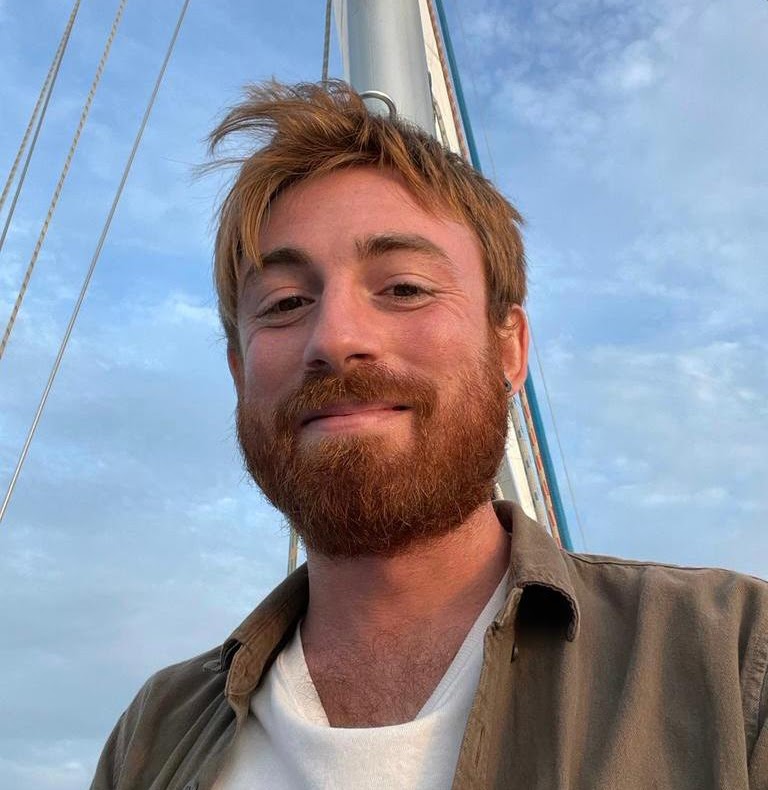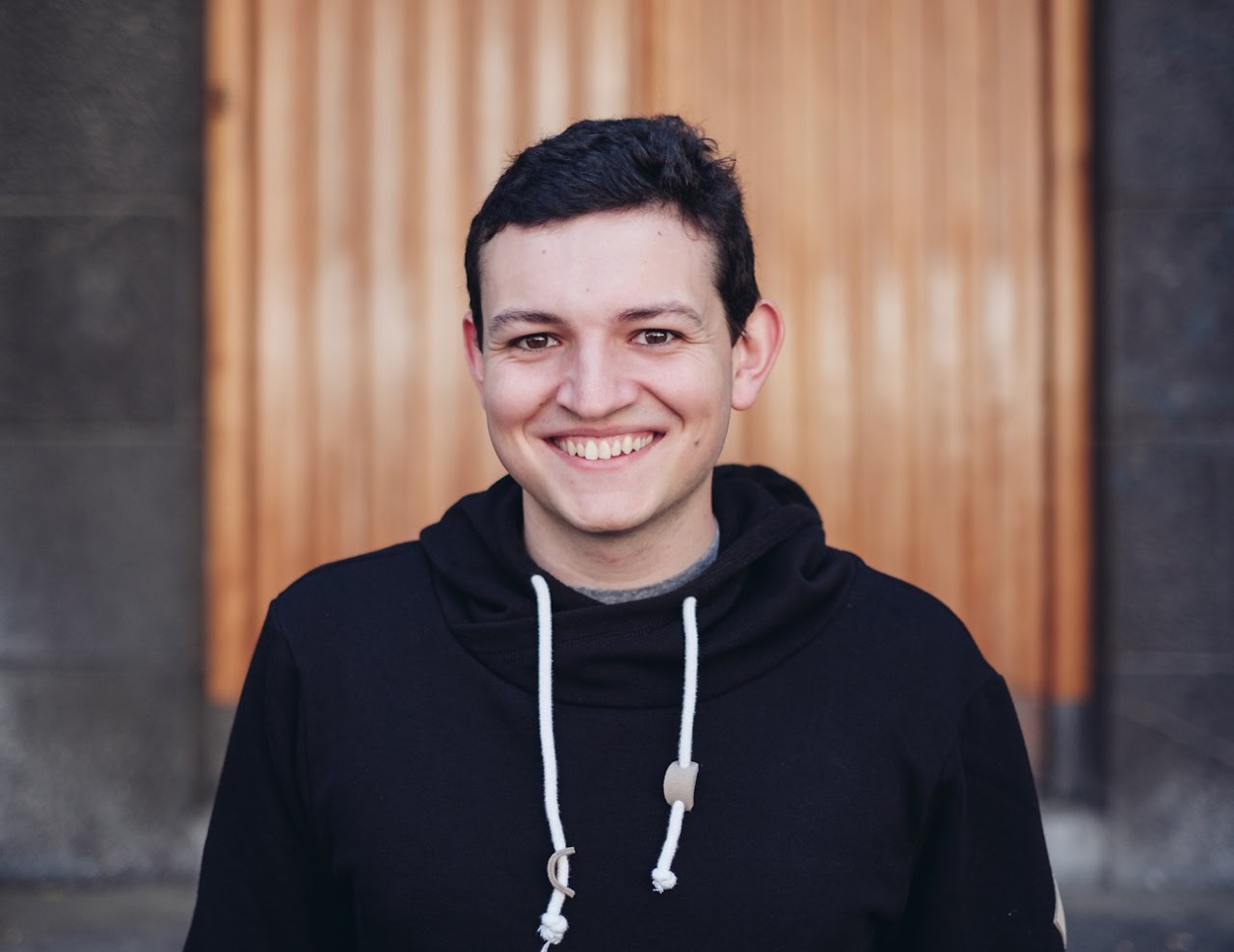From Shared Research Interests to the American Economic Review: PhD students Carlo Cusumano and Ferdinand Pieroth

How do consumers choose which mortgage to apply for, where to purchase life insurance, or which food delivery service to use?
This question is at the heart of newly published research in the American Economic Review, by Yale Economics PhD students Carlo Cusumano and Ferdinand Pieroth, together with Princeton’s Francesco Fabbri.
In a world where consumers can perfectly understand products and offers, this is a seemingly simple task. Yet making informed decisions about complex product offerings requires significant time and cognitive effort from consumers. To figure out the best offers, consumers must use ‘costly attention,’ challenging the traditional economic notion that we can easily compare and pick the best offers available.
In this paper, the authors explore the impact of competition in markets with this costly information processing. They delve into the concept of ‘rational inattention,’ where consumers must decide not only which offer to choose but also how much effort to invest in understanding these offers. Surprisingly, the study reveals that in markets where information processing is particularly complex, increased competition can lead companies to capture higher profits, overturning conventional wisdom about competition.
Journal Publication
 Competing to Commit: Markets with Rational Inattention
Competing to Commit: Markets with Rational Inattention
American Economic Review
The paper grew out of early connection and collaboration in the program. Carlo and Ferdinand both enrolled in Fall 2019, became friends, moved in together in the third year, and quickly began exploring how to collaborate on research projects. “We worked really well together in coursework and on problem sets, and had similar but complimentary research interests,” Ferdinand said, “it turns out that we worked really well together on research as well, and now have 3-4 papers together.”
Both praised the fact that the second year theory sequence enabled them to get up to speed on the frontiers of research, which inspired them to come up with their own research ideas to build on the field. “We found this literature—that’s really exciting and recent—that looks seriously at how people acquire and process information. A lot of it is asking: what attention costs do people face when making decisions? Or what happens when consumers need to process information about offers before making a choice?” Carlo said.
To date, however, most of the literature had focused on monopolistic markets, even though these markets typically have competing firms—e.g., there are many insurance companies and mortgage lenders competing for customers.
“But no one was looking at the role competition plays in these markets,” Carlo said, “this is how we identified that this could be a good contribution. We found a gap in the literature, and it was a fundamental gap. Usually, when two firms compete, prices will come down, so firms will be worse off compared to the benchmark where they collude. But in this type of market, when consumers need to process information, the knowledge that firms are competing encourages more people to engage in trade in the market.”
And this, in turn, can lead to increased profits. The authors noted that the result of competition being beneficial to the industry itself is surprising. This new ‘attention effect,’ where consumers engage in trade more often, can dominate any effect that competition has on prices. In this case, competition is not only better for consumers, but also better for the producers who now sell a larger quantity of goods. Consumers have more trust in the fact that if they buy the product, competition is disciplining the market, and therefore they engage more in purchases. “This is something that standard economics modeling cannot reproduce,” Ferdinand said, “paradoxically, competing is better than colluding—it enlarges the pie—but this doesn't happen in markets without information costs.”

In the interview below, Carlo and Ferdinand reflect on what drew them to economics, Yale, and the Economic Theory Program.
 Carlo: I originally wanted to study philosophy or math, but economics, to me, was the perfect intersection where you can apply math in a way that has something to say about people, poverty, and inequality. Early on, I became really interested in game theory—it gave me tools to formalize everything from chess to electoral competition to market outcomes. Focusing on this area allowed me to explore more applied questions with formal tools, which is what I do in my research. I love looking at real life examples that I can understand better by formalizing them in a game, and I knew I could deepen my interests and expand my toolkit in Yale’s program.
Carlo: I originally wanted to study philosophy or math, but economics, to me, was the perfect intersection where you can apply math in a way that has something to say about people, poverty, and inequality. Early on, I became really interested in game theory—it gave me tools to formalize everything from chess to electoral competition to market outcomes. Focusing on this area allowed me to explore more applied questions with formal tools, which is what I do in my research. I love looking at real life examples that I can understand better by formalizing them in a game, and I knew I could deepen my interests and expand my toolkit in Yale’s program.
Yale is very famous for being a good place for theory, and my undergraduate advisor and mentor, Pierpaolo Battigalli, who knew some of the faculty members here, assured me that it was a good place for research, that the faculty were welcoming, and that I’d feel at home. And he was right—very right.
“It’s a great environment, especially the theory group, both in terms of the relationship we have with faculty, as well as the cohort of students. It’s a very friendly and nice place—On a daily basis, we exchange feedback about our research ideas in seminars and the common areas of the department—I really love it here!”
 Ferdinand: I was originally torn between economics and psychology, but really enjoyed studying human and economic interaction from a more mathematical and scientific perspective, which economics allowed me to do. My undergraduate thesis gave me a window into what economic research is like, which I really enjoyed, and that motivated me to continue down the academic path.
Ferdinand: I was originally torn between economics and psychology, but really enjoyed studying human and economic interaction from a more mathematical and scientific perspective, which economics allowed me to do. My undergraduate thesis gave me a window into what economic research is like, which I really enjoyed, and that motivated me to continue down the academic path.
By the time I knew I wanted to do a PhD, I was sure I wanted to work on theoretical topics, and Yale is one of, if not the, best departments in the theoretical fields. Even knowing I wanted to do theoretical research, I also enjoyed the ability to explore other topics here. In my second year, I veered off into macroeconomics, but returned to theory in my third year. I kept an open mind coming in, but the second year field courses were extremely helpful in getting up to speed on the research frontier in different subfields, and that helped with building a foundation where you can then create your own research ideas. I really enjoyed all of it, particularly my advisor’s segment of that sequence: Marina Halac. She is amazing, and that course is amazing.
“In general the entire theory group is very easy to reach and always willing to give feedback. I love the way both faculty and students reach out after talks to give feedback and advice—It allows for a lot of interaction with all the faculty working in these areas.”